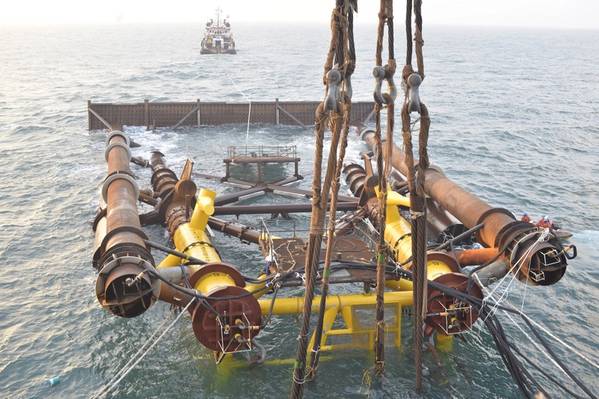
The cost of oil and gas decommissioning in the UK has decreased for the fourth year in a row since the cost was first estimated in 2017, when the Oil and Gas Authority set a target of a 35 percent cost reduction, with the goal of reducing the cost for both the industry and for the government to reduce the cost of tax relief.
The OGA said its 2021 Decommissioning Cost Estimate report revealed a fall of over £13bn from the baseline £59.7bn to £46bn, "marking steady progress towards the £39bn by end-2022 target called for in the 2017 report."
However, the OGA said, despite the overall positive performance, reductions have begun to slow, and if it continues at the same pace as the past two years, the ambitious target will be missed.
"Therefore, there is a clear need to build on what has already been achieved by capturing remaining opportunities from collaboration and aligned, incentivized contracting," the OGA said.
This year’s £2bn (4%) reduction contributes to a total cut of 23% thus far, an average of almost 6% a year, and industry needs to maintain this level to cut the total cost by 35%, OGA said.
"Importantly, the reduction seen in the forecast estimate has been broadly matched by a 20% cut in the costs of completed decommissioning projects. Actual decommissioning expenditure in 2020 was £420million lower than estimated the previous year, in comparison to a £170m reduction in 2019 and £432m in 2018. The 2020 reductions were largely due to deferral of activity as a consequence of Covid-19 and the low commodity price," the OGA added.
"The decommissioning industry is demonstrating a growing culture of continuous improvement, allied to knowledge-sharing and learning from experience which is helping it to reduce costs despite the fragmented nature of the market which has historically made collaboration difficult," the OGAsaid.
The OGA said that the industry must maintain the pace of cost-cutting because the opportunity is immediate: "the next 20 years is when most decommissioning will take place and when the reductions must be made."
According to the oil and gas regulator, since 2017 reductions of 25-35% have been achieved across three of the largest cost categories – well decommissioning, removals, and subsea infrastructure.
"Well decommissioning alone represents 45% of the total cost estimate and removals a further 25%; and these two categories account for more than £10bn of the overall savings to date," the OGA said.
Opportunities
The OGA's 2021 Estimate noted that there were multiple opportunities to bring about further cost reductions, including:
Challenges
Among the main risks to continuing to bring down costs, OGA listed the following:
Stuart Payne, OGA Director of Supply Chain, Decommissioning and HR, said: "The industry is responding to the challenge to cut costs well, but it must maintain focus and increase the pace to hit the 35% target. The prize is significant for industry and the exchequer. So far around £13bn has been potentially saved and there are billions more up for grabs."
“We will continue to help; benchmarking costs and promoting best practice; robustly holding operators to their regulatory commitments and providing tools like the improved Energy Pathfinder site which has multiple opportunities for collaboration and innovation.
“We will also work to bring companies together – because collaboration and knowledge-sharing is key, companies must continue to step up and collaborate in this area.”